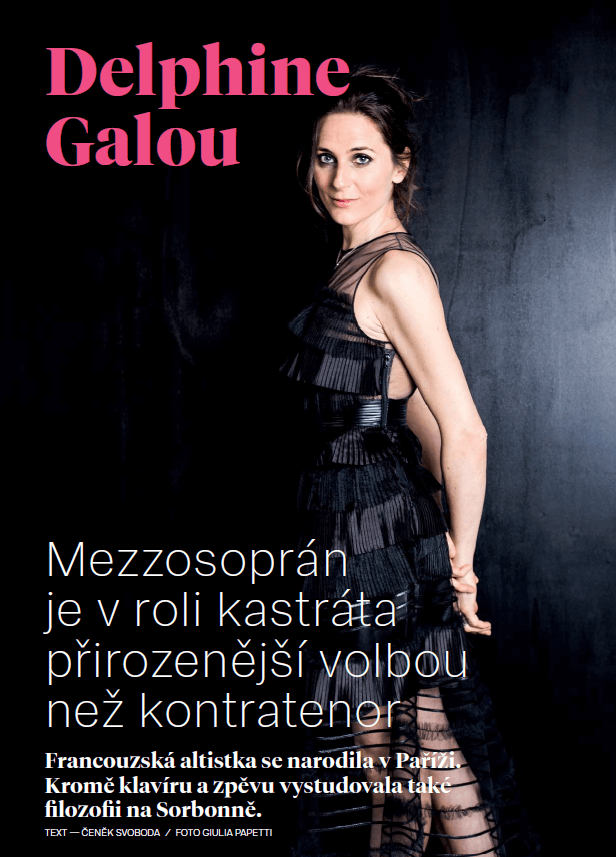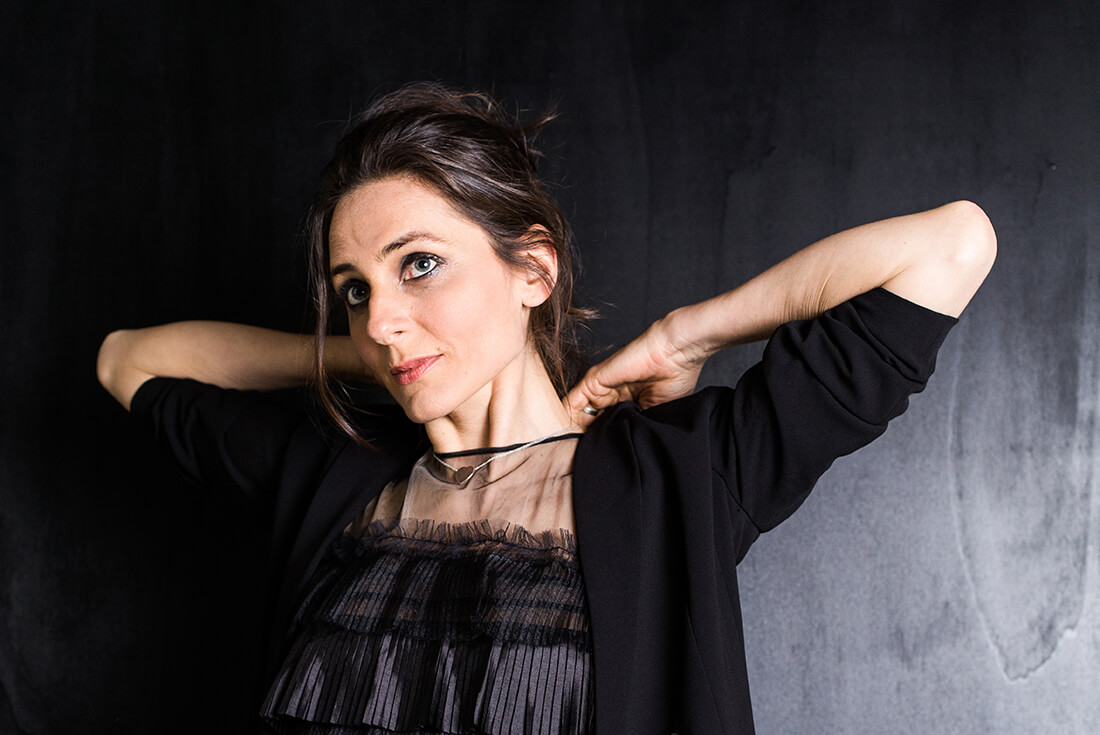Interview
When all the alto roles are cast by countertenors, I'll happily go farming in the Italian countryside...
The July edition of the Czech music magazine Harmonie offers the interview with Delphine Galou, soloist of the final festival concert Canto d’Orfeo.
With the kind permission of the Harmonie editors, we select several questions asked by Čeněk Svoboda.
The entire interview can be found in magazine Harmonie (only in Czech). The electronic version for tablets or phones is available as well.
Canto d’Orfeo
The Mythical Singer in Baroque Operas
Tuesday 8. 8. 2023 | 19.30
Sts. Simon and Jude Church
Dušní/U Milosrdných, Praha 1
Delphine is the one of those ladies you will remember. Either thanks to the bewitching gaze of her large dark eyes, or thanks to the soft timbre of her voice, which in the higher positions reminds of the countertenor colour. But perhaps the most striking is her disarming honesty and spontaneity in the world of concert and opera stages, where everyone needs to hold his or her position, if not even a pose, where the important part of the success is the ability to play the part perfectly, not only on the stage, but in personal life as well. She doesn't need to pretend or play anything.
In Paris, you studied not only singing, but piano and philosophy as well. Do you remember the very moment when you finally decided on an alto singer in the field of early music? Can we found any connection between philosophy and early music?
The world of music absorbed me a long time ago, and during my studies I already knew that singing would be my living. I didn't consider myself a philosopher, but I have to admit that the study influenced my life, definitely. My way of understanding time and the meaning of life was certainly formed when studying Philosophy. It may seem that music and philosophy have nothing in common. When I sing, I am not aware of any connections, but at the same time I know that even music has its "philosophical" level. Monteverdi, for example, often argued against Plato's teachings and argued that music must be true. The music must truly express the emotions and content that is hidden in the text. Especially when searching for content and understanding the characters of the plot, musicians are also a bit of philosophers.






